Subscribe to Our Newsletter
Stay updated with the latest tips and strategies. Get additional discounts and alerts on offers.

Nowadays a company’s success depends on the marketing strategies it implements, but figuring out which one works the best for your company can be extremely hard. Most companies believe to generate quality leads with a mixture of both inbound and outbound strategies. According to statistics, over 73% of marketers use inbound marketing as their primary approach.
With this statistic, we can tell that over the years inbound has become very popular but outbound remains to be the backbone of company especially in its initial stages. So what are outbound strategies you ask? Outbound lead involves strategies in which the marketer contacts the prospect.
Using the right outbound tactics at the right time will help you propel your revenue performance and build a stronger customer relationship. Outbound is often considered to be the traditional form of marketing. However, its strategies can help you reach the maximum potential to drive brand awareness and generate quality leads at a bigger scale.
In this blog, we’ll cover the concept of outbound marketing, its types, examples, how it is different from inbound marketing, and the top outbound marketing strategies that will boost your marketing efforts in 2022.
Outbound lead generation is a method of engaging with leads who might not know your products and services yet. The word outbound nowadays refers to marketing channels like television, radio ads, press releases, and billboards.
And that’s exactly what an outbound lead strategy does in the digital space as well, it helps you approach your target audience by using methods like email, cold calling, social selling on LinkedIn, social media prospecting, and organizing events to create brand awareness. The other outbound lead generation examples include sending out flyers, billboards, trade shows, and conferences, but these methods can be expensive.
Now you may ask, “How to build an outbound sales strategy?” The first thing you must do before planning your outbound strategy is to do a lot of research. Once you start your outbound marketing and the leads are interested in what your company offers, then it will be passed on to the sales team for conversion.
Outbound is very different from inbound strategies like content marketing, which rely on leads who already know of your company or its products. Simply put, inbound attracts leads while outbound searches to find them.
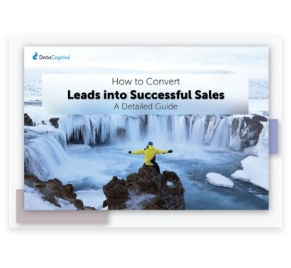
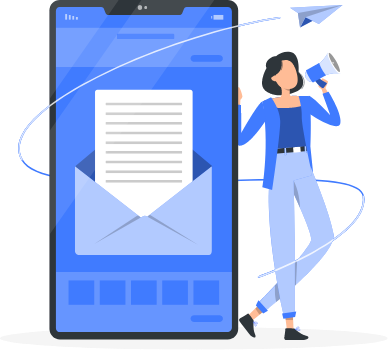
A B2B lead who is interested in your company or its products but hasn’t purchased anything yet. These leads are then moved down the sales funnel.
The marketers then use methods such as cold calling, sending out sales emails, social media outreach, or making outbound PPC advertisements to convert those prospects.
The outbound marketing tactics and strategies can be daunting at first but you achieve high results if you approach people with the right pitch.

Generate quality leads faster
One of the most significant advantages of outbound lead generation is that it gets results faster than inbound strategies. Strategies like SEO and content marketing usually take a long time to deliver the same results due to the competition. By sending cold emails to generate quality leads, you can get converts immediately.

The other valuable benefits are that you can implement more personalization into outbound. And these personalized messages will resonate with your target audience and make them respond.
Personalization is the key to outbound marketing because it allows you to build a connection with your leads and nurture them to the next step of the sales process. This way you can accelerate conversation and streamline your sales funnel.
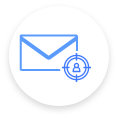
Since your content is curated to the target audience, you can reach decision-makers at the right time. You can also control the type of prospect you want and have as many prospects as you want as it is in your control.
For example, with the help of an email campaign, you can easily weed out any leads that are too small or big.

Once you have perfected your targeting, offer, and sales process, you can control the pace of the number of leads you want in your pipeline.For example, a digital agency or any B2B company can only take on a certain number of clients simultaneously. This is where outbound strategies will help you most.


Outbound strategies will help you reach a more comprehensive or a niche audience to increase your brand awareness and get more visibility. Increased interaction and feedback from a wider variety of prospects will benefit your company’s sales process.

Outbound allows you to get your business in front of new markets that may not know of your company yet. By exploring more markets, you will be able to test an array of messaging techniques wider. It will also give you access to more data sets that will be vital in creating buyer personas and offering value propositions.

Since you will gain more information and market intelligence from outbound, you can create robust customer profiles. More information will also help you engage, convert leads and segment better.
Inbound and Outbound strategies are very different from each other.
Five main differences between them.
It brings you more nurtured and qualified leads to go down the sales funnel.
It brings leads that are more nurtured and more qualified to go down the sales funnel.
Outbound lead generation actively reaches a broader group of people and therefore brings you more sales opportunities in a shorter period.
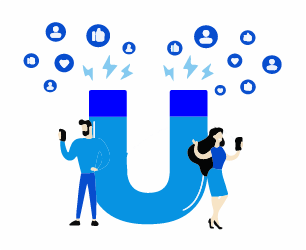
A cold email is a type of email that you can send to potential customers with little knowledge of your company or its products and services. According to a study, emails generate an average ROI of 3800%. Cold emails are the most effective outbound lead generation tactics for B2B companies.
You will also get an opportunity to create brand awareness and build a meaningful relationship with your target audience. When you design emails, you must consider many factors such as an email subject line, the right contact, clear and concise content, personalized elements, etc.
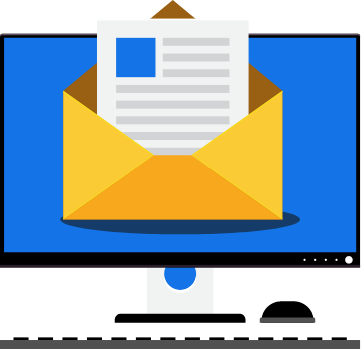

Set an email schedule and frequency

Create an email with a high open-rate

Add an eye-catching email subject line

Automate your email campaign

Add compelling CTAs

Add interesting images or videos
You can perform outbound activities such as

Connecting with cold prospects

Nurturing leads

Sending follow up emails

Distributing marketing collaterals

Content distribution

Keeping prospects engaged

Corresponding with prospects regarding sales appointments

Responding to feedback, queries, or requests
A cold call is nothing but an unsolicited phone call that a business uses to reach out to its leads in an attempt to sell its products and services. Another name for cold calling is telemarketing, which has been around for ages because it is still one of the best ways to target and engage with potential customers. The main goal of cold calling is to organize a meeting or demo with the prospects to pitch its products and services.
Prospects are very different and it’s up to you to set the tone of the conversation and win them over. You can perfect your outbound calling strategy with a lot of practice and by using CRM and Automated dialer software. According to a study done by RAIN Group, 69% of buyers claimed to have accepted a cold call in 2019.
There are many cold calling software with which your sales representatives can make HD call quality, SMS, real-time coaching and transcriptions, other powerful calling features all under one platform.

If you want every cold call to be successful, you must

A lead list of contacts that may have an interest in your products or services

Create a script containing a list of questions you will ask your leads on call

A message that should be written from your prospect’s perspective

Leverage data on past activity to schedule outbound calls
According to research, B2B decision-makers still prefer to use the call as a medium to generate leads, with over 57% of C-level executives and nearly 50% of directors/managers responding to sales calls. Track the performance of every call with a full set of KPIs and other important metrics.

Nurturing the leads made in other channels

Responding to prospects queries

Immediate lead qualification

Collecting or verifying information

Understanding their pain points or expectations

Promote content or other collaterals

Follow up with them
Referral marketing is a strategy in which a brand encourages its existing customers to recommend their products or refer the company to others. But for this strategy to work, you have to give something in return to your existing customers, this can include a free product subscription, an exclusive or limited period offer, a discount, etc.
In simpler words, referral marketing is all about turning your brand’s customers into brand advocates, while providing them with incentives to share information about your company. The main reason why this outbound strategy works is because of the power the word of mouth holds.

You get highly relevant leads

Lead retention will be higher

Easier to nurture leads acquired through referrals

Customer loyalty is higher

You have complete control over your referral programs
Even though referrals can happen through inbound, they are both very different
Inbound referrals: These leads are the ones that come to you after they hear about your business from someone else. They are leads who are likely to convert.
Outbound referrals: Require your existing customers to make a call to someone they know. They aren’t as qualified as inbound referrals.
Pay per click or PPC is another great way to advertise your company and its products. It’s also the quickest outbound lead generation method as it requires you to pay for every click a user makes on your online adverts. According to a study done by Hanapin Marketing, 79% of brands agree that PPC marketing is a huge driver for their business. This falls under the category of outbound lead generation because viewers don’t expect to see your commercials.
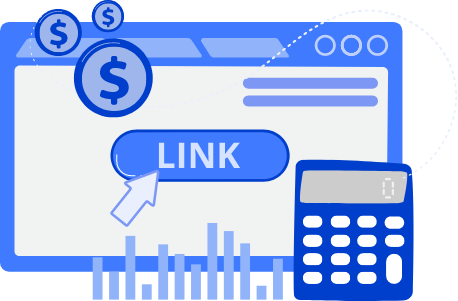

A lot of research

Selecting the right keywords

Creating effective landing pages

Relevant content

Targeting the right audience
There are numerous benefits of PPC campaign, as they help you reach your targeted audience, rank on the SERPs, the immediate flow of traffic, branding opportunity, easy to measure, among others.
LinkedIn is also one of the best B2B outbound marketing strategies, as it is the most business-focused social media platform. Based on the study done by Statista over 66% of B2B marketers found LinkedIn to be the most effective followed by Twitter at 55%.

Engage with your prospects via LinkedIn connections

Use LinkedIn profiles and account activities to map target accounts

You can join LinkedIn groups to access a higher number of prospects

Target specific groups of prospective clients

Have direct communication with prospects
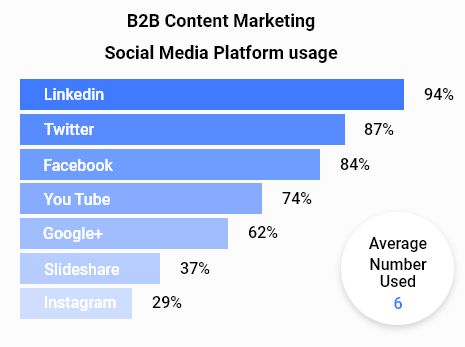
Events are among the best practices of outbound lead generation as it allows you to inform potential leads about your products and services to test them out. You can set up numerous types of events such as webinars, online courses, live streaming events, trade shows, seminars, conferences, VIP experiences, festivals, products launch parties, etc.
The main goal of organizing a networking event is to connect with prospects, educate them and show how your product can help solve their problems. Networking events are a great opportunity to generate outbound leads and a highly scalable way to market your business.
A proven outbound lead generation strategy goes a long way when the ultimate goal of your business is to generate and retain qualified leads.
Outbound marketing is a vital part of B2B lead generation, brand awareness, and filling your sales funnel faster. So, make sure not to ignore it in favor of inbound strategies alone and end up losing huge revenue opportunities. The outbound strategies mentioned above should be implemented along with inbound to grow your company more efficiently and timely.
Outbound lead generation best practices will ensure your success in driving more sales. And contrary to popular belief outbound marketing is not going away any time soon. When used at the right time, the right outbound tactics will help you build relationships with your prospects, leads, and account.
Hope you found this blog helpful. Happy marketing!

Outbound lead generation is a way to engage with potential customers who might not know about your product. So, generating quality leads usually comes down to well-planned sales and marketing strategies such as
Show Some Love!

Subscribe to Our Newsletter
Stay updated with the latest tips and strategies. Get additional discounts and alerts on offers.
Related Articles
Subscribe to Newsletter
Stay up to date with the latest marketing, sales, and service tips and news.
